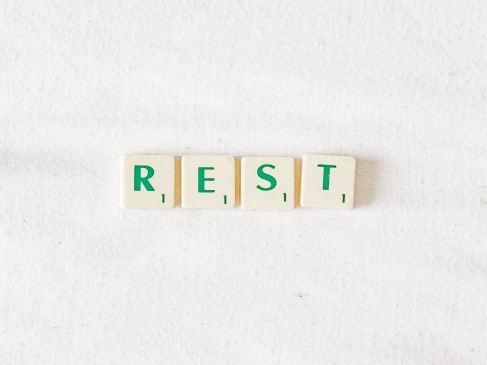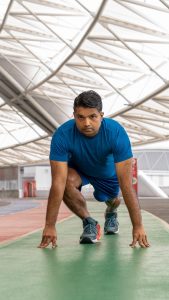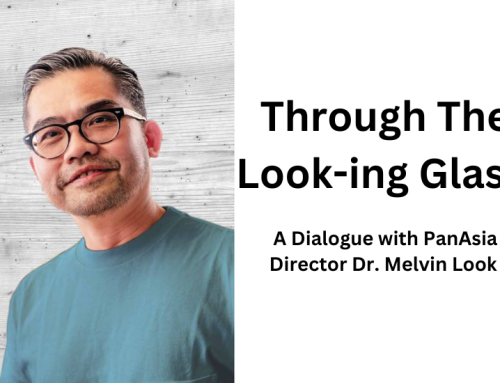
For people who have never had physiotherapy before, the term might conjure certain misconceptions. People may associate physiotherapy with pain, and plain simple massage and exercise therapy. Some may also think that physiotherapists are not first line practitioners (meaning you only see them after seeing a doctor) and only treat muscular injuries. These could not be further from the truth.
Physiotherapy offers an incredibly valuable resource for people of all ages and all walks of life. From short-term injuries to long-term conditions, the practice is able to guide patients towards regaining mobility, flexibility, strength, and work towards mitigating any pain or discomfort they are feeling. Physiotherapists help their patients through movement and exercise, manual therapy, education and advice. They help patients manage pain and prevent disease, enabling them to stay in work and/or helping them remain independent for as long as possible.
To that end, Rapid Physiocare Managing Director and Senior Principal Physiotherapist Mr John Abraham has helped countless patients achieve these goals to maintain a good quality of life. With over 18 years of experience working for various healthcare organizations, Mr Abraham’s experience and knowledge in his field of expertise is extensive. But his considered opinions go way beyond physiotherapy. In this exclusive interview with Prime, Mr Abraham shares with us his thoughts on various health and wellness issues, including diet, exercise and stress management.
 Good morning, Mr Abraham. Thank you for taking time to speak with us. As you are aware, Prime caters predominantly to health and wellness matters. What do “health and wellness” mean to you? Were you always health conscious since young or when did you first decide that health is important?
Good morning, Mr Abraham. Thank you for taking time to speak with us. As you are aware, Prime caters predominantly to health and wellness matters. What do “health and wellness” mean to you? Were you always health conscious since young or when did you first decide that health is important?
MR JOHN ABRAHAM: Health and wellness are arbitrary terms used by many in the healthcare industry. To me, health is wealth. It is your most valuable asset. Wellness is about mindfulness. It is about being aware of yourself and your body so that you can form great habits.
I have always been on the heavy side, even at a tender age. But being overweight did not affect my career progression in the healthcare sector, where I have worked in the last two decades. It was only when I was setting up my practice that I felt something was missing. It struck me that I needed to be more conscious of my body, and be a role model to my patients and colleagues. I then embarked on a journey of bodily transformation and managed to shed some weight. I am feeling much better now, full of energy and vigor to strive for the better.
I guess that means the adoption of a healthy lifestyle. How do you maintain balance between a healthy lifestyle and work? Do you think work-life balance is manageable for everyone?
JA: A healthy lifestyle is in the eye of the beholder. I have my ups and downs, but one thing I have learnt from being mindful about my health is that it takes precedence over the complexities of life and work. I work many hours during the day, but I have managed to squeeze in at least 3 sessions of workouts per week to maintain my fitness and improve strength in my body.
I believe everyone starts at a different level. You need to work out what you can manage health-wise (i.e. dietary changes, increase in activity/exercise, or getting more rest and time for family and friends) and make time for it. In that way, your priorities will shift and you may find a healthier you.
We all need to be in charge and held accountable for our own health. Prevention is better than reaction when it comes to health. So learning how to prevent yourself from getting chronic diseases like diabetes, high cholesterol and high blood pressure, whether through lifestyle or dietary changes, is of great importance. And if you have any chronic disease, seek a plan to help manage and bring your illness under control, and improve from there.
A large part of healthy living is healthy eating. Do you pay much attention to what you eat? How difficult and important do you think it is to maintain a strict dietary regime?
JA: I do pay attention to what I eat on a daily basis. But frankly speaking, I think it is difficult to maintain the consistency of a diet plan. If you want to adhere to a diet, the first step would be to obtain a diet plan. You can do so by discussing with your dietician or nutritionist, to ensure that you have sufficient nutrition to supplement your daily needs. Do also check to see if you can include one or two of your favourite comfort foods as it can make it just a little easier to push through days when you are down.
Are you on a diet yourself? What kind of diet is it?
JA: Yes, indeed, I am on a calorie restricted diet which means that I have to limit my daily calorie intake to about 1,600 calories. For this kind of diet, the calorie count may differ from person to person depending on your goal (i.e. weight loss or gain). For me, I am looking to lose weight. This means that I have to count my calories, and watch how much protein, vegetables, fruits, carbohydrates and fats I consume and stick to the limit. I believe that diet makes up about 80% of the fight against weight loss. Hence, I would say it holds a pretty important place. Diet is also one of the factors that affects chronic diseases, so watch what you are eating.
Does your diet affect healthier eating in your family when you eat at home? What do you think is the role of the family in an individual’s diet plan?
JA: The influence of a family’s diet plays an important role in the diet of the family members. However, it is still possible to deviate or have an alternative diet from the rest of the family. In my household, for example, we have a calorie-restricted diet for the adults, while the kids get a normal balanced diet. It just takes some effort to ensure that everyone in the family have sufficient food and nutrients. I believe that whole and natural foods are the best sources of nutrition.
Going beyond diet, is physical activity (such as jogging, going to a gym, swimming, etc.) an important part of a healthy lifestyle?
JA: Absolutely! Physical activity can help you manage your energy levels, and keep you strong and healthy. It is also important to determine which physical activities suit you. If you are unsure, seek help to establish an exercise program to ensure your activities target and meet your goals.
Have you always been an active person since young? Which type of physical activities do you take part in? What do you and your family do for family activities?
JA: I have always been involved with sports, including cricket, weight lifting and bowling. I also enjoy jogging. I have been working on a strength and conditioning program as well as cardiovascular exercises to improve my overall fitness. I work out an average of about 3-4 times per week.
As for my family, we participate in various physical activities, including dance, basketball and football. But on family days, we like to gather to take walks down the Esplanade and Riverfront. We make it a point to put aside our phones and just engage in meaningful bonding conversations. These are always very enjoyable experiences.
Do you see these activities changing you and your family’s health for the better?
JA: I think engaging in exercise gets the body physically stronger, and you learn to be mentally strong and resilient. I feel that catching up with your family on their lives, and knowing how they are faring in life is heartening and can be enlightening. It is a great mental health check for the entire family.

Work and physical activity necessitates rest. For you, how many hours of sleep do you get daily? How do you manage on days when you do not have adequate rest?
JA: I usually get about 7-8 hours of sleep a day. Sleeping is important as it helps our body heal and restore function to get ready for the next day. Without adequate rest, your body may be stressed and ageing occurs more rapidly in the bodily organs. On days when I did not get adequate rest, I often consume coffee/tea to give me a boost. This is not a long term solution. At the end of the day, I would go home and ensure that I get sufficient sleep to allow my body to recover.
Rest is also a way of coping with stress. For you, how do you usually cope with stress?
JA: Stress is an integral part of modern life and yes, I do have many situations where stress comes into play. I manage my stress through exercise and relaxation. You will need to identify what helps you to relieve stress. Different strokes for different folks. This can be exercise, healthy foods, music or other forms of entertainment. Also, it will be great to address the root cause and systematically resolve any conflicts/problems that are causing the stress.
 What do you think are some of the challenges that modern life poses to health?
What do you think are some of the challenges that modern life poses to health?
JA: The hustle and bustle of the busy lives we lead is not very forgiving on health. As such, we have to take measures and steps to ensure we keep working towards a healthier lifestyle. Giving ourselves reminders and using technology to complement a healthy lifestyle can go a long way. For example, smartphones and watches have applications that can remind you to get active when you are sedentary. There are also applications that will remind you of your diet plans and those that help you to keep track of what you have consumed.
In your line of work, what aspects of health do you often see people neglecting?
JA: Mental health and physical health (in terms of diet and lack of physical activity) are areas that I often see people neglect. For starters, a healthy mind aids and brings about a healthy body. Looking after your mental health can be a hefty process, but the underlying causes and stressors must be identified. Once you have done so, you should then look at whether the factors contributing to the issue(s) can be modified. If it is not modifiable, then there must be an adjustment of your views and expectations. And if you are able to make a change, then make it for the better.
Physical health can be targeted by looking at your diet and activity level. Always start at a manageable level where you do not make too many drastic changes to your diet, nor should you ramp up your physical activity too much. Gradual changes are more sustainable.
Do you think COVID-19 has changed the way people view and value health?
JA: People are beginning to recognize the importance of being healthy, especially during these uncertain times where access to healthcare can be limited. COVID-19 has also improved people’s awareness of hygiene, thereby reducing the spread of some of the more common ailments like flu. Measures like these are here to stay as their benefits are highlighted in the media and become a part of life. There also seems to be more ergonomic and postural related problems surfacing due to the increase in work-from-home arrangements. Many people do not have an ergonomic work set up at home, thereby giving rise to such issues.
What would be your top three tips for someone looking to live a healthy lifestyle?
JA: Three simple rules:
- Set SMART (Specific, Measurable, Achievable, Relevant and Time-based) goals.
- Plan on how to achieve your goals.
- Get started!
Finally, what parting advice or words do you have for Prime readers?
JA: First of all, thank you for making health a priority. Always make a conscious effort to keep up with your healthy lifestyle but at the same time, make sure your efforts are sustainable in the long run. May you enjoy many more healthy years ahead. Here is to good health!
Conversation with a CEO Interview Series: Rapid Physiocare
Managing Director Mr John Abraham




